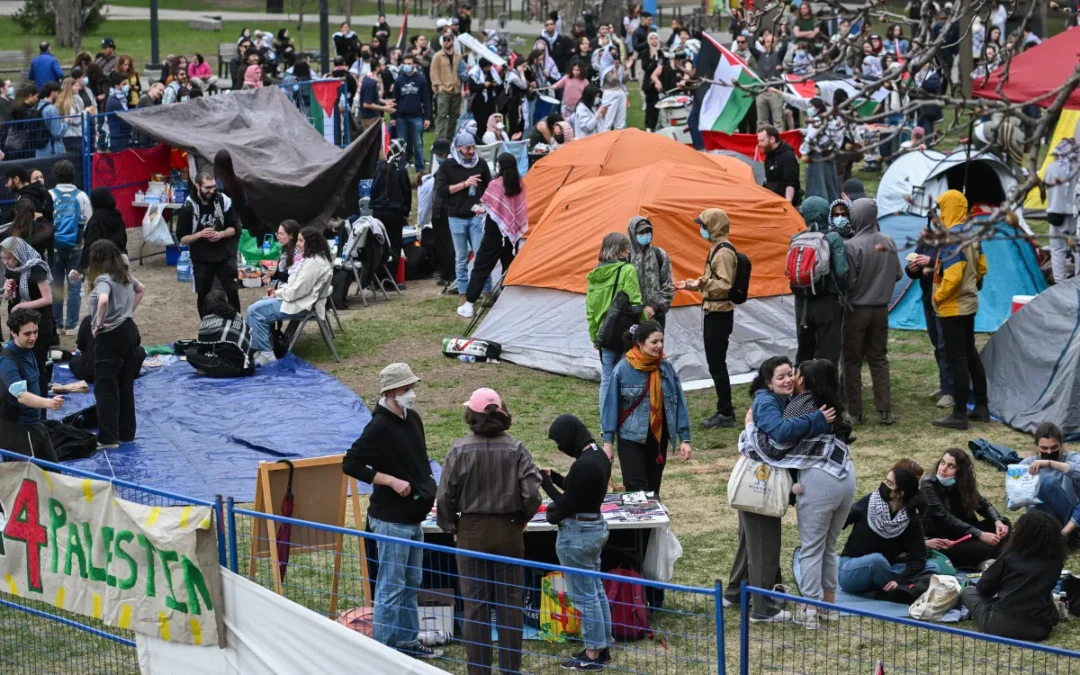Last week, I was asked by a local Christian school to present Judaism to their students. The school had a small class of middle school students who were taking a class on the topic of “Spiritual Quest in a World of Religious Freedom” and it wanted to highlight the various faiths in America. In addition to myself, there was a Christian youth pastor, a Hindu Priest, a practitioner of Buddhism, and a spokesman for a local mosque. Sounds like the beginning of a good joke right? Anyway, when we got there we all made small talk and then we were introduced one at a time to the class. In other words, they walked each of us, one at a time, into the room. So of course, I was left out standing with the Muslim spokesperson. Trying to make conversation, I recalled that the mosque that he works for has done some interfaith
events with some of the non-Orthodox synagogues in Columbus. So in the spirit of small talk, I asked him, “Ohh haven’t you done events with such and such synagogue” to which he responded with venom- we don’t do work with those supporters of genocide anymore! And almost immediately he went into the room. Needless to say, an answer like that shakes you, especially because now we need to pretend to be cordial as we share a platform to describe our respective religions. The next thing that happened truly surprised me though. When we got in the room, everyone made an opening statement. And the Hindu priest starts and he’s describing all the different idols they worship and their theology. And the Buddhist lady starts saying how they are fundamentally humanistic. And the Christian guys were sort of nodding and validating everything. But the Muslim guy and I were appalled. We couldn’t possibly allow that to go unanswered. And so we both began talking about significant differences. And really throughout the event, it became more and more apparent that the Muslim and I had the most in common. From laws, faith, understanding of gender and so much more. When the session ended I was somewhat uncomfortable and shocked. On the one hand in the course of the session on religion, it became apparent that we shared much in common. We were almost allies in the room. (Again, all while not validating each other). On the other hand, his hate towards Jews was so apparent from the beginning of the event that I had trouble reconciling the two points. After giving it some thought, I want to share a perspective that is what has given rise to today’s Drasha. The great Maimonides has a very famous letter called the Iggeres Teiman or the Epistle to Yemen. In 1173, the Jewish community of Yemen was suffering a double challenge: a fraudulent prophet was stoking false Messianic expectations and an Islamic fundamentalist crusade was pressuring Jews into forced conversion. The community contacted the Rambam seeking guidance and ideological support. In response, the Rambam penned a famous letter known to history as the Iggeret Teiman. In it the Rambam expresses great love and support for the community of Yemen. And he proceeds to chronicle the various prosecutions the Jews have faced. From those who wanted to destroy them physically, such as the Babylonians to those who wanted
to undermine their belief system such as the Greeks. And then he turned to what he calls the fraudulent religions or the forgery religions. That took Judaism, its basic books, and foundational values and added or changed them. Referring to Christianity and Islam (incidentally this is a passage he refers to Mohammed as the Meshugana) he goes on to lambast this new insidious approach of attacking Judaism by trying to mimic it, infiltrate it, and convince the Jews to convert. But now listen to what he says:
This really helped me think through what had happened at that meeting. At the end of the day, unless something is actually coming from G-d it is a forgery. And when you follow a forgery bad things happen. Yes superficially, there were similarities between us. Exactly as the Rambam said. We both have laws. Similar theologies. But at the end of the day a forgery will not create people of the moral caliber of the Jewish People. The reason the Muslim world, this by the way, liberal Muslim congregation that has expressed willingness to partner with the Jewish community before, can become so misguided- is because it is really a forgery. It has no spiritual essence. And thus its people can become so filled with hate for the real thing. But there is a forgery that is even more relevant to our lives. Perhaps the most important value in American society today is that of human rights. Of Social Justice. It
is the dominant moral/ethical value in our society and somehow, someway it has taken over and become an enemy of the Jewish People. In the name of human rights, Israel
is attacked non-stop! In the name of human rights, the UN declares Israel as part of its hall of shame! In the name of human rights college students have sit-ins against Israel!!! How is it possible that this noble endeavor has become so misguided? So warped? I believe the answer is the same. The Human Rights that our country is marching for is essentially a forgery. Allow me to explain. Human rights emerge from Biblical values. It emerges from the Torah. Values such as being created in the image of G-d, loving thy neighbor, helping the convert, of fairness in judgement, are all in the Torah. That’s not a coincidence. They are a function of seeing G-dlienss in the world. The reason human rights matters is because we see each human being as created in G-d’s image without that, there can be no concept of human rights. Human rights without G-d lead one down a path of social Darwinism or survival of the fittest. And tragically, so much of our society, even our fellow Jews, continue to fall for this forgery. This week’s parsha ends with HaShem communication to Moshe. The Torah says that:
Asks Rav Moshe Feinstein what is this coming to teach us? Explains Rav Moshe that the only way one can continue to know what is right and wrong in the world is if they have fully delved into G-ds word at its source. Because Moshe was fully immersed in the voice of Sinai when he was in the MIshkan, this is how he knew what to do even when he left its wall. Similarly, when one is in the world they will only know what to do if they remain firmly anchored in Judaism and Torah in its true authentic source. Without that, the values we aspire towards become forgeries. The way to fight the plague of anti-semitism now is to buckle down on our connection to Judaism. The way to convince a Jewish kid on campus to be pro-Israel is not to convince them that the pundits on TV are wrong or the UN is wrong or the Palestinians have the wrong narrative- but to connect them to the source of values of
Torah. And when we remain firmly connected to the Voice of Sinai – no matter where
we go we can take it with us.

